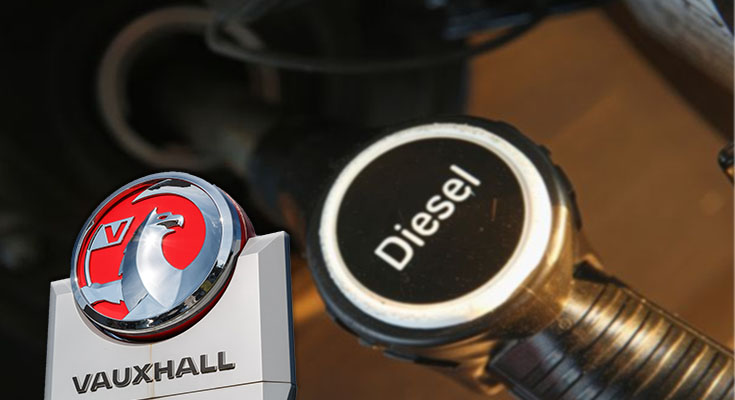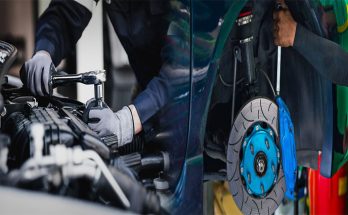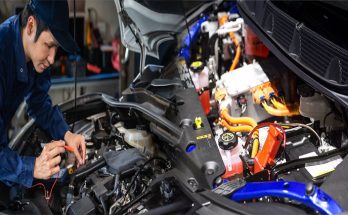British carmaker Vauxhall, which is now a part of global mobility player Stellantis, has been in the automobile industry since 1903. It is known as Great Britain’s oldest surviving vehicle brand. Today, Vauxhall is in the news for an entirely different reason – its involvement in the controversial Dieselgate emissions scandal.
After the KBA (German Federal Motor Transport Authority) allegedly found defeat devices in Vauxhall cars in October 2018, authorities in the UK also discovered illegal cheat devices in thousands of the carmakers’ diesel vehicles.
Over a million car owners in the UK may be affected and can therefore receive compensation amounting to thousands. The Vauxhall emissions claim may be equivalent to about 75% of the vehicle’s original purchase value. The specific compensation amount, however, depends on the circumstances of the case.
While the carmaker denied all the allegations, they have recalled about 500,000 affected vehicles in Great Britain. Over a 10-year period, it is estimated that approximately 600,000 Vauxhall vehicles may have been equipped with the cheat device.
Vehicles that were manufactured between the years 2009 and 2020 are said to be affected by the defeat devices.
Why are defeat devices bad?
A defeat device is a mechanism programmed to sense when a vehicle is in regulatory testing conditions. Once this happens, the device automatically lowers emissions to levels that are within the World Health Organization’s (WHO) mandated limits.
Regulators will find the vehicle clean and safe for selling and driving. However, this is only true when the vehicle is in testing conditions. Once the vehicle is driven on real-world roads, it goes back to emitting dangerous nitrogen oxides or NOx in amounts that are about 40 times more than the safe and legal levels mandated by the EU. Therefore, the vehicle is a pollutant.
Nitrogen oxide emissions are linked to around 40,000 early deaths in the UK every year.
Vauxhall and all the other carmakers involved in the diesel emissions scandal misled customers into believing that their vehicles are environmentally safe and emissions-compliant.
How is the Dieselgate emissions scandal linked to defeat devices?
The Dieselgate diesel emissions scandal is what started the use of defeat devices for emissions cheating.
In September 2015, the Volkswagen Group allegedly used defeat devices in hundreds of thousands of Audi and VW diesel vehicles that were sold in the US. Authorities ordered the carmaker to recall the affected vehicles for a fix. Volkswagen paid fines, fees, and compensation – something that they continue to do nowadays.
A few years after VW’s cheat devices were discovered, US authorities zeroed in on another German carmaker – Mercedes-Benz. The carmaker denied the allegations but recalled affected vehicles and paid fines and fees. Mercedes’ parent company Daimler met with US authorities in 2020 and reached a settlement agreement worth billions.
After Mercedes, one carmaker after another was discovered to have used illegal defeat devices. Vauxhall entered the scene in 2018 and Vauxhall emissions claim in the UK started recently.
Other carmakers that allegedly used defeat devices include:
- BMW
- Renault
- Ford
- Peugeot
- Porsche
- Škoda
- Seat
- Mini
- Nissan
- Hyundai
- Kia
- Citroën
- Land Rover
Every year, the list grows as more carmakers are added.
The diesel emissions scandal is the biggest and most controversial incident to ever happen to the global automobile industry. Its repercussions are still felt throughout the industry until now.
Why is NOx dangerous?
Nitrogen oxide or NOx is highly reactive. This group of gases has main components such as nitric oxide (NO) and nitrogen dioxide (NO2), both dangerous elements with adverse impacts.
When NOx mixes with other elements, it can form smog and acid rain. It can also produce ground-level ozone, a pollutant that slowly weakens vegetation.
If a person is exposed to NOx emissions, regardless of the amount or volume, they will suffer numerous consequences.
NOx affects a person’s cognitive abilities, which means they become vulnerable to dementia, specifically Alzheimer’s disease.
Exposure to nitrogen oxide also has impacts on mental health. Even if you haven’t had bouts of depression or anxiety before, you’re bound to experience them after being constantly exposed to NOx emissions.
Common health impacts include asthma, respiratory ailments such as emphysema and bronchitis, lung problems including pulmonary oedema, and breathing difficulties. Serious health issues resulting from NOx emissions exposure are asphyxiation, vocal cords spasm, cancer, and chronic lung function reduction. Cardiovascular diseases can also develop because of exposure.
The most devastating impact of exposure to NOx emissions is premature death.
What should car owners do?
Authorities believe that VW, Mercedes, Vauxhall, and all the other carmakers should be held responsible for their deceitful and dangerous actions. Bringing them to court through a diesel claim is the most ideal thing for car owners to do. Joining a GLO or group litigation order should be a priority, especially if the goal is to get compensated.
How should I start my diesel claim?
You can work with an emissions expert for your GLO. However, you have to be sure first that you are eligible to file the diesel claim. Visit Emissions.co.uk to get all the information you need to verify your eligibility and start your claim.





